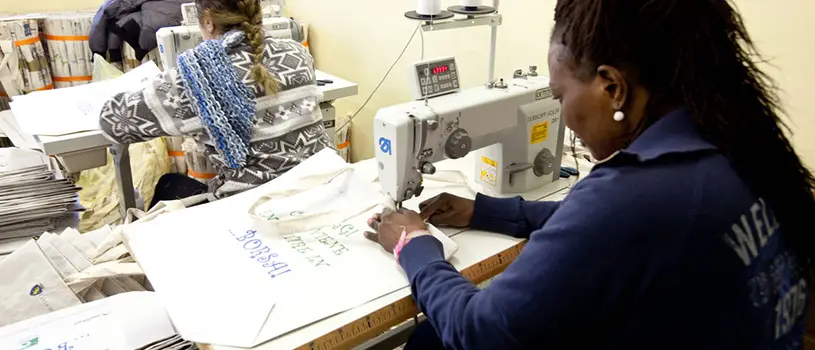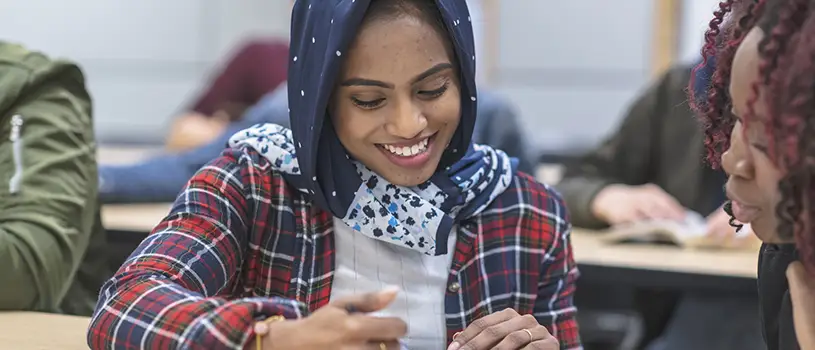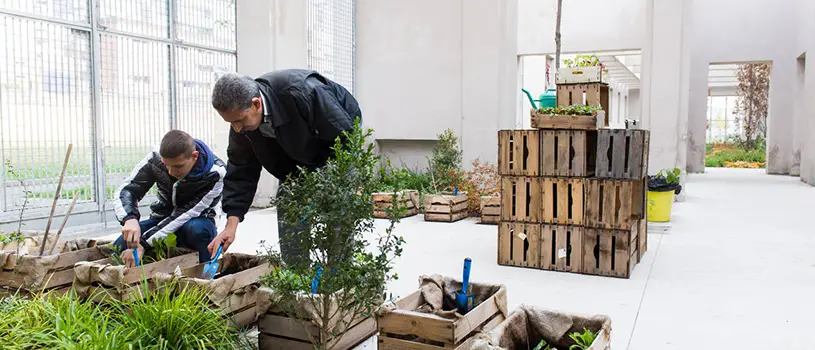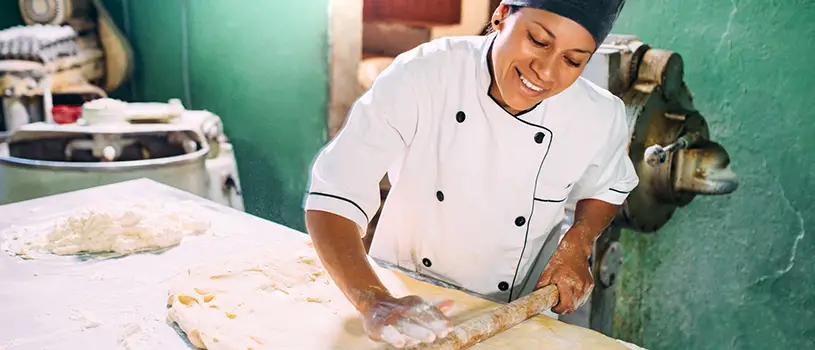We support the most vulnerable people in finding new job opportunities, by offering programmes that enhance their personal and professional abilities, within the framework of local systems that we help strengthen. The ability to actively seek, find and keep decent work holds the key to establishing and relaunching a solid life plan, while also facilitating social inclusion.
Our work is divided into various areas of intervention.
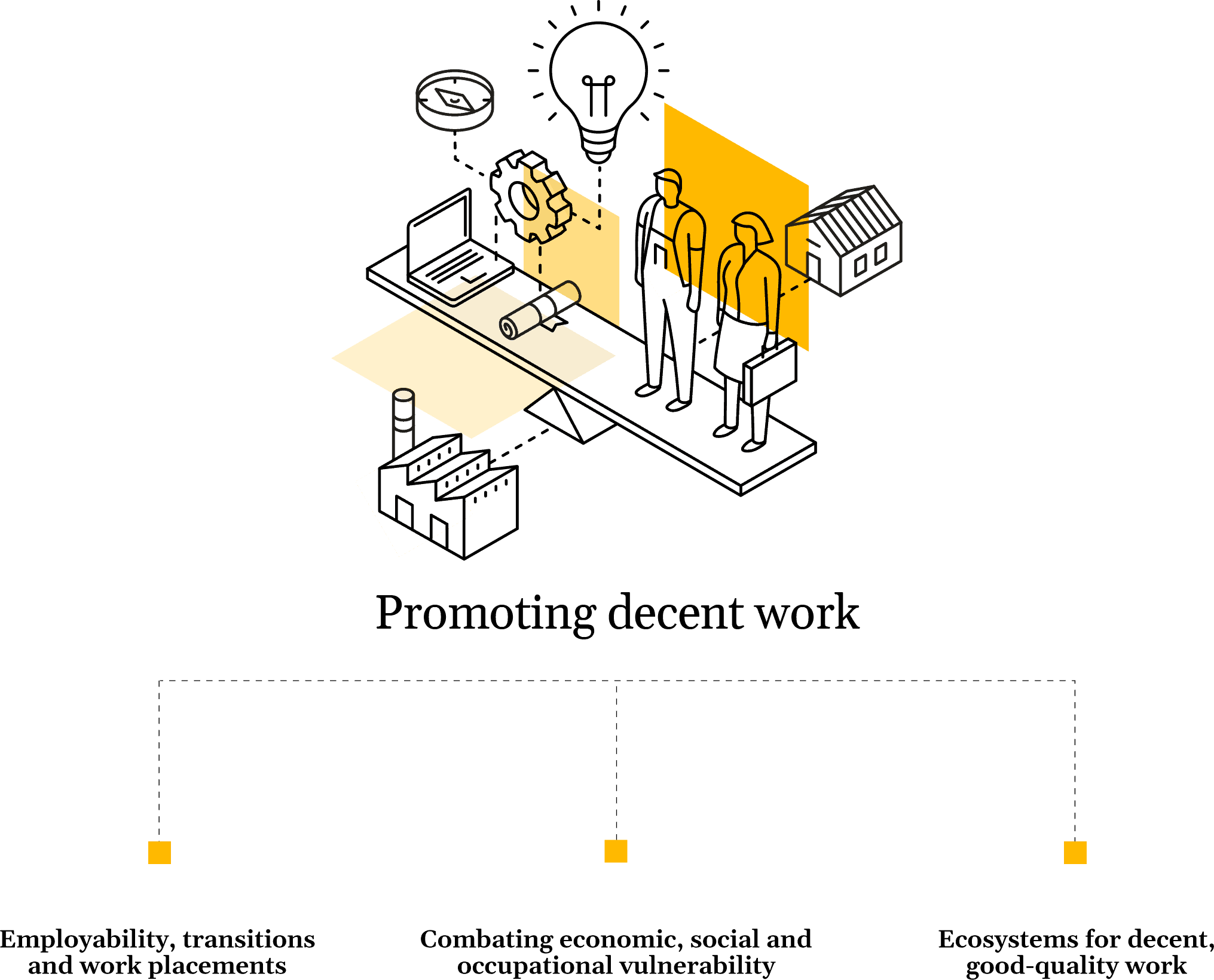
Work is a fundamental aspect of human life, not only as a means of meeting essential needs and achieving economic and family stability, but also as a route to personal fulfilment and social emancipation. This rationale prompted us to establish the Promoting decent work mission. In line with all the projects falling under the People Goal , this mission strives to develop solutions that improve the quality of life of people, families and communities, thus boosting social cohesion and solidarity.
Employability, transition and work placements
To increase people’s ability to find and remain in long-term employment, and to offer themselves and reinvent themselves on the labour market, with a career plan that matches their abilities, ambitions and market demand, action needs to be taken – sometimes preventively – both in career guidance and advice and in the expansion of training and employment opportunities. Our Articolo + 1 project in Turin and Genoa is aimed at unemployed young people, aged between 15 and 29, who are not in education or training (NEET), with a view to increasing employment levels amongst them and filling gaps in their educational and vocational profiles, thus stimulating a strategic alliance between the business world and the private social sector.
Our Training for Professional Mobility project in Turin is aimed at vulnerable adults over the age of 29 who need support to enter or return to the labour market. For over 20 years, we have also been involved in interventions aimed at providing training and employment opportunities for people in prison or on probation. In particular, we support the consolidation of the professional and managerial skills of social cooperatives operating in the field of independent economic activity located in prisons, the LEI – Lavoro, Emancipazione, Inclusione project aimed at improving the opportunities for social and employment reintegration of women in prison, and CUP – Convicts Upskilling Pathways, a European initiative that tests and evaluates innovative training modules designed to boost the employability of prisoners and former prisoners.
Combating economic, social and occupational vulnerability
The economic crisis of recent years and the more recent impact of the coronavirus pandemic on our country’s growth projections have dramatically increased the proportion of the population at risk of poverty and social exclusion, not only in terms of material and economic deprivation, but also in terms of education and the possibility of exercising the rights that accompany citizenship, including the right to mobility, health and culture.
This is why we take action to combat situations of potential or actual vulnerability, by offering integrated responses to people’s needs, both in terms of policies for employability and employment and in the social arena (empowerment, combating housing difficulties, strengthening real-life social networks and access to services). A significant example of this is the INTEGRO project, implemented in conjunction with Ufficio Pio, aimed at helping 200 individuals and their families along the road to independence, while at the same time stimulating the processes of social infrastructure and capacity building of the partner organisations.
We also support pathways towards the integration and inclusion of people of migrant origin in society and the employment market, in order to encourage their full and active participation in their new community. This has given rise to two important projects: More than Just Asylum, which equips people who have the right to international protection (and who have either left or are preparing to leave reception systems) to achieve socio-economic independence and stability and Improve, a capacity building programme aimed at upgrading the skills of operators, public decision-makers and representatives of civil society and the private sector, by identifying effective solutions and practical projects to help integrate asylum seekers and refugees in Piedmont.

